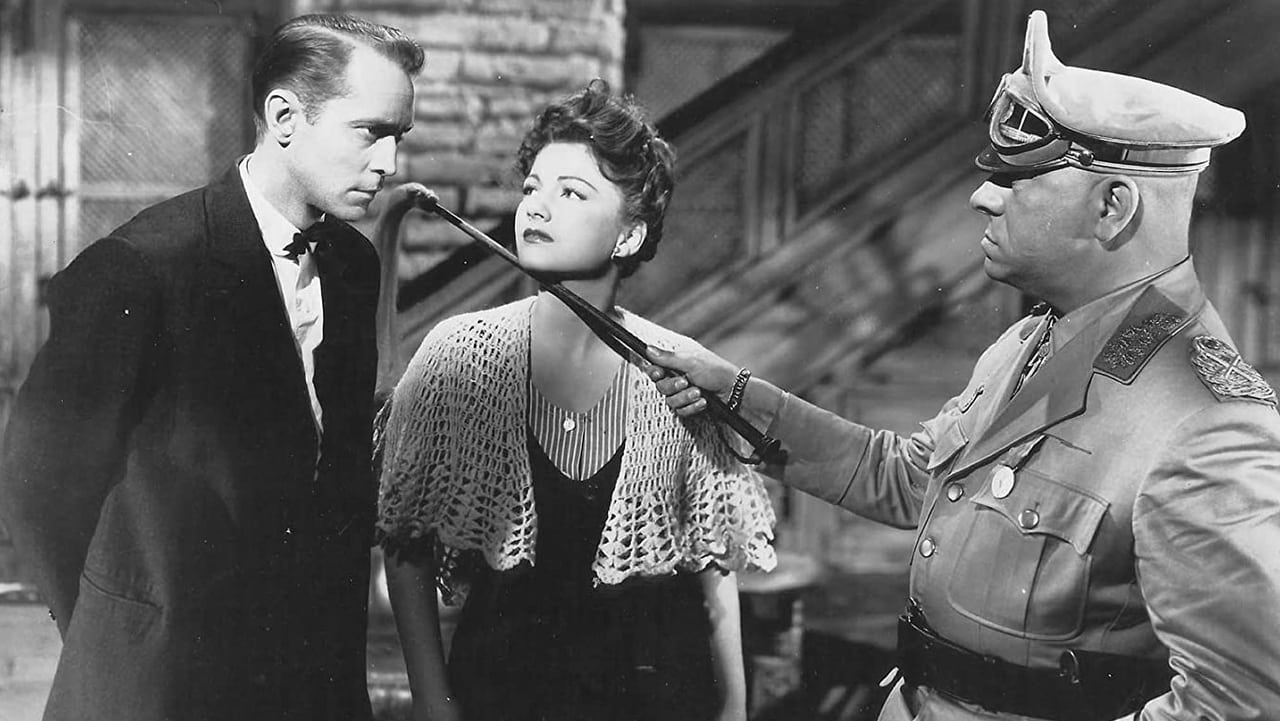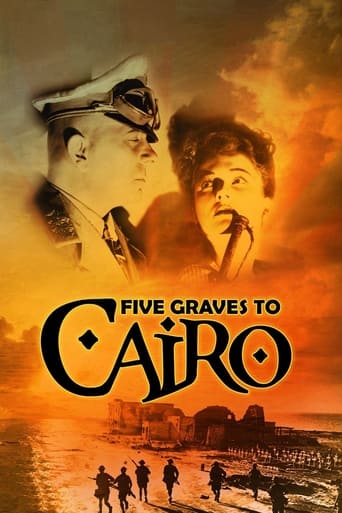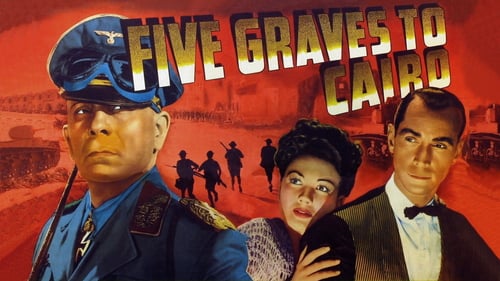



A lot of fun.
I have absolutely never seen anything like this movie before. You have to see this movie.
View MoreExcellent and certainly provocative... If nothing else, the film is a real conversation starter.
View MoreThe best films of this genre always show a path and provide a takeaway for being a better person.
View MoreDuring WWII, Billy Wilder directed and at least co-wrote "Ball of Fire", "The Major and the Minor", "Double Indemnity" and "The Lost Weekend"--a remarkable string of films. In the middle of these, he directed and co-wrote "Five Graves to Cairo". Based upon a play, most of the action takes place in an Egyptian hotel. The remarkable thing is that the story involves military action that occurred just months before. An ingenious plot twist links the action in the film to the defeat of Rommel in Africa.The film opens with Captain John Bramble (Franchot Tone) seeking refuge in a small hotel that had been bombed by the Germans the night before. Due to some coincidences, he finds himself impersonating a waiter under the noses of the occupying Germans. Anne Baxter plays Mouche--a French maid whose brother is imprisoned in a German concentration camp.Erich von Stroheim plays Field Marshall Rommel--the seemingly unstoppable German officer whose battle exploits confounded the Allies--as possessing egotistical overconfidence. When on-screen, his presence is commanding.With his usual flair, Wilder combines drama, suspense, humor and--because of its wartime release--the obligatory morale-building pro-Allies patriotic message.
View MoreIt's remarkable how interesting a war time espionage film can be, while at the same time requiring major suspension of disbelief throughout the story for various reasons. The major one here for me related to the character of actor Franchot Tone impersonating a German undercover spy. Throughout the entire film, not one German officer or soldier thought it appropriate to address him in the mother tongue. There were plenty of opportunities, as German was used sporadically in the story at various times. At least in the interest of being cautious with captured British officers around, one would think Field Marshal Rommel (Erich von Stroheim) or Lieutenant Schwengler (Peter van Eyck) might have addressed Bramble/Davos in German, especially in the early going when all the characters at the Hotel Empress would have come under suspicion.Which brings me to my next point. You probably wouldn't need to know a thing about General Rommel to question why he would speak freely of German military strategy in the presence of English officers. I don't think so. As for the casting of Erich von Stroheim as Rommel, there was no physical resemblance to speak of. My idea for the role would have been someone like Conrad Veidt who portrayed Major Strasser in the Bogart film "Casablanca". Although with the timing of this picture, shooting schedules might have overlapped between the two.One more thing before I'm through. I thought the gimmick with the map and the letters spelling out 'EGYPT' was a fairly clever plot element, but there again, a bit of thought brings a big question mark. Given that any of the letters on the map might have represented an area covering hundreds of square miles, the resolution for the Allies wouldn't have been as precise as the story suggests. Even given a general area in which to unearth the hidden military supplies, a fair amount of time would have been needed to discover a weapons cache.Still, even with all the perceived glitches in the story, I fond the story intriguing enough to hold my attention. All the principals did a good job, and I particularly liked the character of Farid (Akim Tamiroff), who was downright hilarious at times under stressful circumstances. I was also moved by Bramble's response to the Alsatian maid Mouche (Anne Baxter), who had an overbearing concern for her younger brother who was a prisoner of the Nazis. It appeared Bramble made his point when he stated - "It's not one brother that matters. It's a million brothers".
View MoreYou need to remember that for a certain period almost every film out of Hollywood was either about the war or about something that took place with the war as a backdrop. In that context, this film -- directed by Billy Wilder, who would become a legend in later years -- is one of the best of the genre. It is not merely about the war in North Africa, it is not merely about what it is like having to fight against the Nazi machine, it is not merely about being a spy for the "good guys", there is a secondary plot arc about maps and secret caches of materiel which I prefer not to give away. Of the many films of this type done in this period, one of best. Entertaining, and a little piece of history, to boot.
View MoreBilly Wilder, as many European film artists and technicians, also contributed his share of propaganda during the Second World War, with this film adaptation of Hungarian writer Lajos Biró's play, "Drama in Four Acts", previously filmed twice as "Hotel Imperial" at Paramount. It narrates a story of love and political intrigue involving Austrians and Russians during First World War. Given green light by Paramount to make a new film, Wilder and writer Charles Brackett discovered the property and, based on recent war events in North Africa during Second World War, decided to cash in the drama headlines of the times. I read that Biró's play had comic touches, but I really do not know who contributed the antics merged with the drama in this version, if they were the playwright's ideas, or if they were added by Brackett and (especially) Wilder, who even wanted Cary Grant to play the lead. The result of this spy story about Field Marshal Erwin Rommel and the sabotage of his "Five Graves" operation, is plagued with stereotypes, caricatures and comic relief, all of which are so out of place that they become the real saboteurs of "Five Graves to Cairo". Erich von Stroheim plays his trite version of a ruthless European officer, while Anne Baxter unconvincingly tries to pass as a French girl, Akim Tamiroff overacts as he frequently did (this time as a Egyptian, but he used the same tics to play a Chinese general, a Spanish Republican, a Mexican mafioso, a Turkish cook or an Italian monsignor), and Fortunio Bonanova is a bad joke as a ridiculous Fascist general who loves to sing arias. The best performances are given by Franchot Tone and Peter van Eyck, who respectively play a British corporal and a German lieutenant, both under control. Tone is convincing and moving, especially in his last scene in a graveyard; and Eyck is good as an officer exchanging favors for sex. Wilder as usual keeps you interested, but for spy thrillers, sex melodramas or action war dramas, it is better to watch "Casablanca" (1942) or James Mason as Rommel in "The Desert Fox" (1951), which are much better, and were more honest about their business.
View More